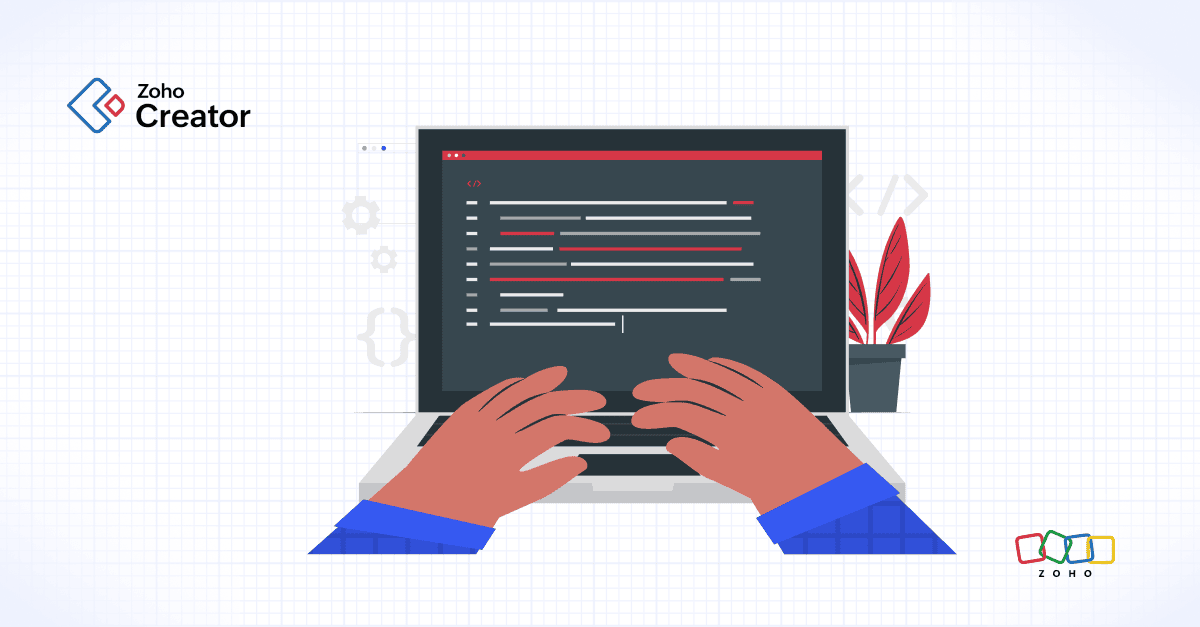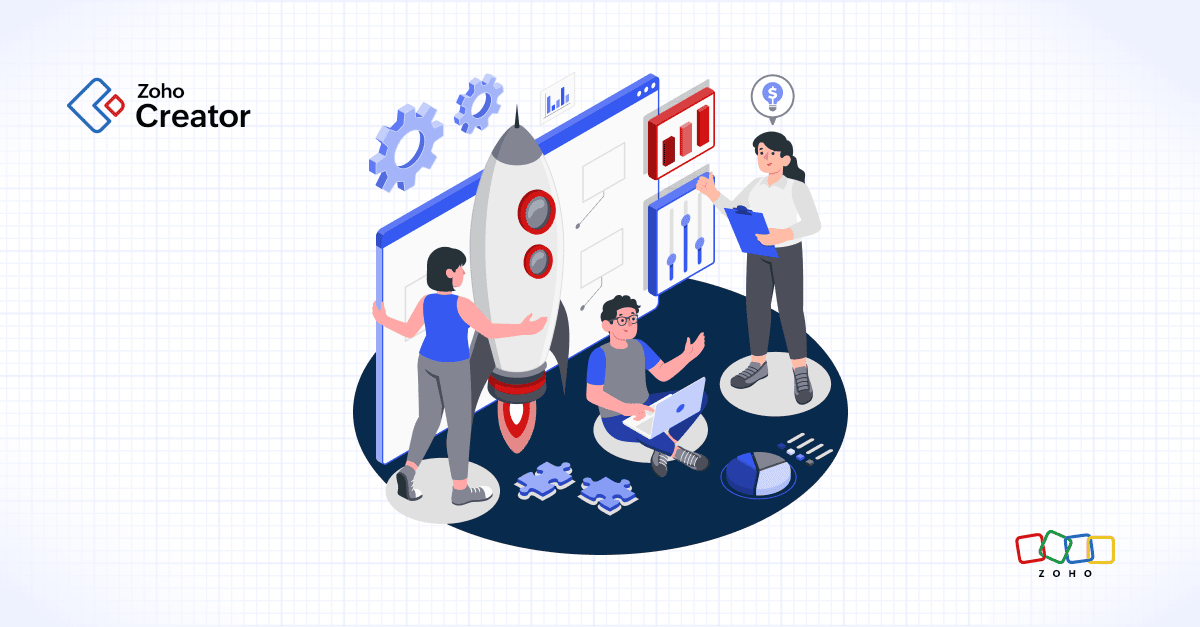- HOME
- Know Your Tech
- 5 reasons manufacturers should switch to low-code platforms
5 reasons manufacturers should switch to low-code platforms
- Last Updated : April 20, 2023
- 3.9K Views
- 3 Min Read
The digital revolution
The manufacturing industry is going through a major digital transformation. A simple online search for “manufacturing trends” will give you 600 million results on how automation is disrupting the industry with technologies like IoT, artificial intelligence, virtual reality, and smart manufacturing.
Though traditionally ERP suites were always the first choice for automation, their complex structure and expensive licenses have driven many business owners to look for alternative solutions that are faster to build and affordable in the long run.
Lowcode – Your catalyst for digital transformation
One such solution is low-code, a concept that enables rapid design and development of applications with little or no coding. It empowers business owners and IT heads to create custom solutions to cater to specific business use cases faster, with visual builders and ready-to-use code snippets. By following an agile model, it allows manufacturers to automate more processes in less time using limited resources.
By 2024, three-quarters of large enterprises will use at least 4 low-code tools for both IT application and citizen development initiatives. — Gartner Inc, global research and advisory firm
While there are many reasons why you should switch to low-code, here are five reasons to be particularly mindful of as you plan your digital transformation in the coming months and years:
The 5 reasons why manufacturers should switch to low-code platforms:
1. Faster implementation
Installing an ERP system is laborious. Depending on the complexity of the business, it can take up to a year or more.
Whereas with a low-code platform, the basic application can be developed and deployed in a week, and the developer can add additional features in subsequent iterations based on business requirements.
2. User-friendly interface
Any ERP software is complex in nature. Apart from rigid structures, re-engineered business processes, and poor user interfaces, an ERP also requires a dedicated IT team to manage it. Learning such a complex system can be challenging and time-consuming.
On the contrary, low-code platforms are equipped with simple drag-and-drop interfaces, prebuilt integrations, and responsive dashboards so that users at any technical level can navigate the system with minimal effort.
3. Tailor-made solutions
ERP software has limited customization options. For example, it’s not always possible to restructure software to align with your business requirements.
On the other hand, if you alter your existing process to fit the “industry standards” set by your ERP software, you risk losing your advantage over the competition.
With a low-code solution, applications can be built precisely to your business needs, without having to compromise on any functionality. Moreover, with features like sandboxing, you can create a duplicate version of your application to test improvements or implement critical changes without interrupting current app users.
4. Multi-channel communication
Traditional ERP systems have limited sharing of data between departments, which reduces the effectiveness of the software.
However, low-code tools enable users across departments to access relevant information. The admin can set up role and hierarchy-based access to specific parts of the application.
5. No hidden costs
ERP systems can be expensive to set up. Apart from database management charges, they also include infrastructure, implementation, and maintenance costs. The overall expense also varies based on factors like your industry, the number of locations, and whether the system is on-premise or in the cloud.
Low-code platforms offer flexible and affordable pricing solutions that meet or exceed your business needs.
Conclusion
Low code platforms are the future of digital transformation, mainly due to three important factors—they’re easier to adapt, speed up development, and have greater usability. It also helps manufacturers overcome the hurdle of migration from existing legacy systems with powerful integrations in place.
At Zoho Creator, we’ve always worked towards a single purpose—enabling users with varied technical skills to build applications to tackle business problems and for future innovations.
Try Zoho Creator for free and kickstart your digital journey now.
 Swetha
SwethaHello! My name is Swetha, and I work as a Product Marketer at Zoho Creator. A typical day at work involves curating diverse content pieces, interacting with customers, and learning the latest marketing trends. When not at work, you can find me reading, talking to my cats, or exploring places. (She/her/hers)




Comments(3)
I am looking for manufacturing ERP for Agro-Processing Industry. Unlike other Industries in Agro-processing, we get so many byproducts from just one Raw material. While accounting in other manufacturing ERPs they are classifieds as Scraps. But in reality, they by themselves are a whole inventory of new product lines. I would like to know how is Inventory mapped in your ERPs.
HI Zoho Team, I would like to know how Zoho's low code platform support on manufacturing industry business processes as below ; 1.Monthly Material requirement planning run which generates orders for Procurement of raw materials and production orders for finished products considering scrap and capacity constraints. 2. Sequencing of orders from one production line to another line if there is a capacity load or shortage. Thank you VJ
Hi Vijaykumar, thank you for your interest in our product. I'm connecting you with our product specialist via email, who can answer your questions better.